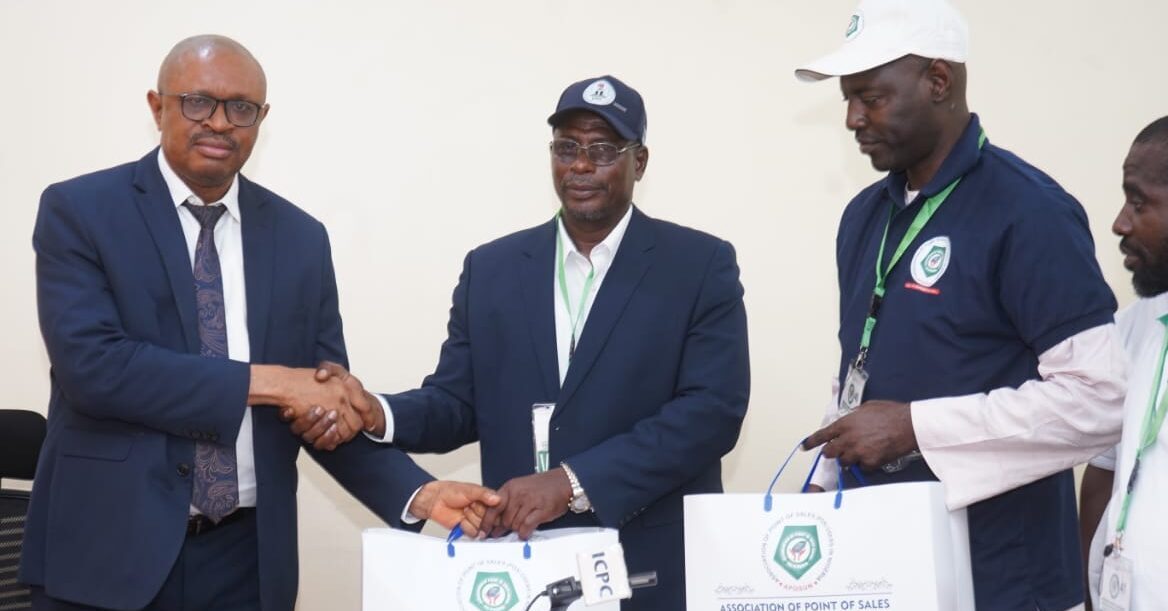The Independent Corrupt Practices and Other Related Offences Commission (ICPC) has expressed its readiness to help curb fraudulent transactions faced by Point of Sales (POS) vendors and users, and willingness to collaborate with any organisation and institution to fight corruption in Nigeria.
The ICPC Chairman, Prof. Bolaji Owasanoye (SAN), made this commitment through Director, Systems Study and Review Department (SSRD) Mr. Abbia Udofia, when members of the Association of Point of Sales (POS) Users in Nigeria (APOSUN) paid an advocacy visit to the Commission’s headquarters in Abuja recently.
The ICPC Chairman commended APOSUN for creating jobs for the youth through the POS business and urged them to organise periodic programmes that would ensure that operators are upright and encouraged to report suspicious transactions.
He further advised the association to put in more effort on sensitising members of the public about their activities.
Earlier, the Chairman of the Board of Trustees (BOT) of APOSUN, Barrister Ibrahim Abdullahi, had sought the collaboration of ICPC in order to minimise fraudulent activities and suspicious transactions at POS centres in Nigeria as well as draw from ICPC’s wealth of experience in fighting corruption.
He stressed that the association was willing to provide relevant information to ICPC on new techniques and methods of corrupt practices through POS transactions as well as report intended fraud and the perpetrators.
The APOSUN boss said the association was determined to ensure a safe environment for POS transactions for users and operators in these challenging times and hoped that its partnership with ICPC would help create a better space for operations in Nigeria.
Also speaking at the event, Deputy Director SSRD Mr. Clement Obaniyi urged the association to update their database and ensure that all operators were registered so as to make fraudulent transactions traceable.
He also advised them to extend their collaborations to relevant financial institutions as that would help them rid their operations of fraudulent acts.


